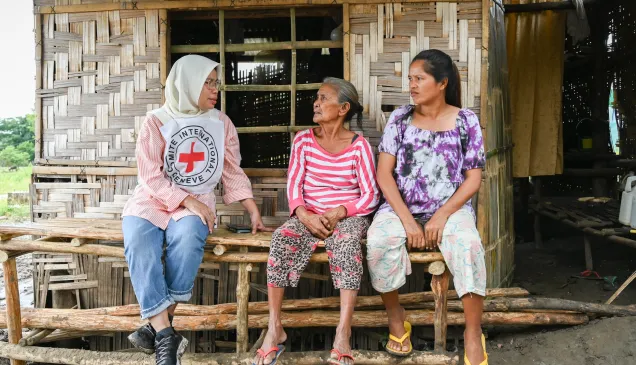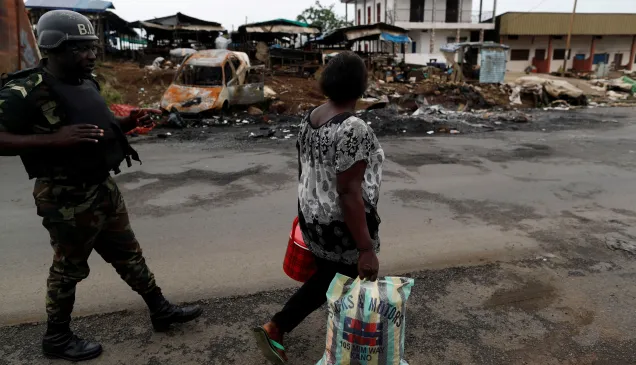4 years since Marawi conflict: Families honor missing loved ones
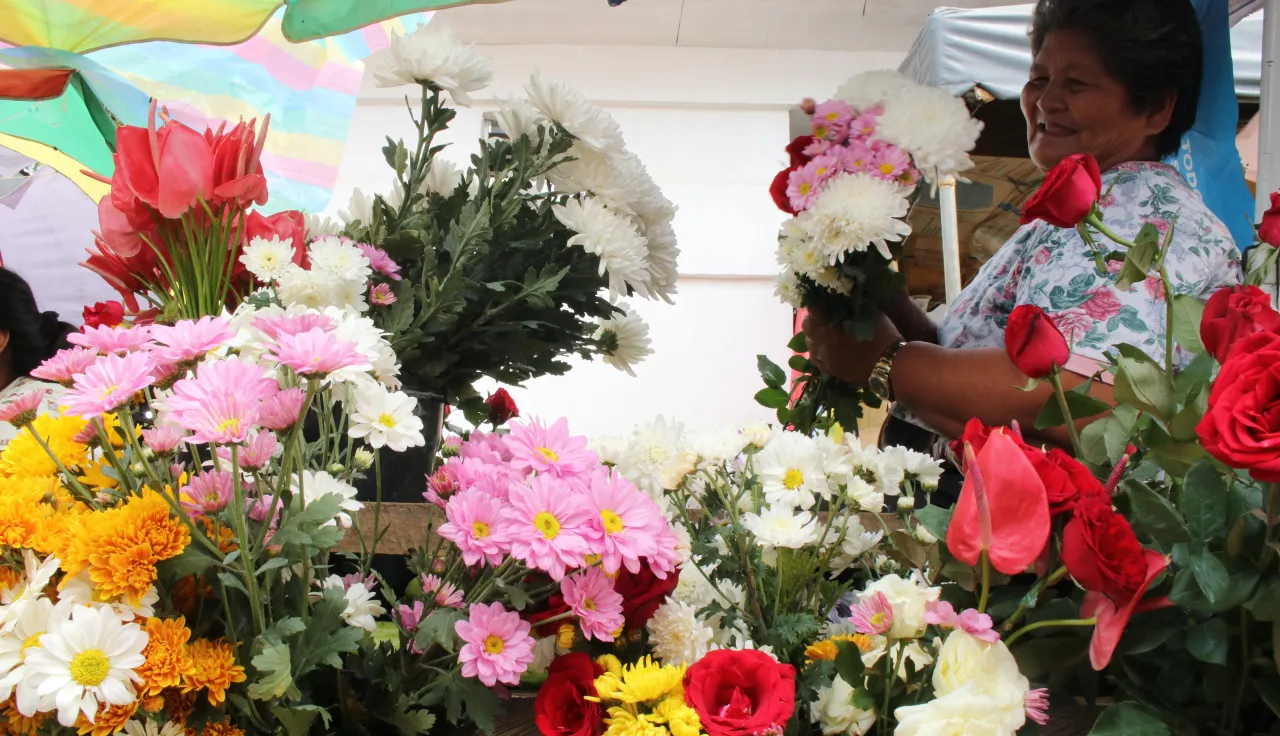
Families of missing persons are still yearning for their loved ones, four years after the Marawi conflict.
Nanay Rosa’s regular day starts grinding as early as 3 am. From her house in an Iligan City village, she hails a habal-habal (motorcycle taxi) to go to the city market where she sells flowers. Her stall is busiest at dawn, so she has to be there before it breaks.
“It’s like having a race with the sunrise,” she said. The 62-year-old mother has been chasing dawns because it is when she generates the most sales.
But this day is not a regular one. She joins her fellow families in commemorating relatives who went missing in the five-month hostilities in Marawi City, Lanao del Sur in 2017. Nanay Rosa’s two sons, Roy, 32, and Jay-r, 29, disappeared in the conflict and they remain unaccounted for to this day.
"When customers consoled me and sent me their condolences, I did not know what to feel. You only give condolences to a bereaved family, but I don't consider my sons dead until I have proof that they are," she said. For a grieving mother, being in the company of others on this day is a source of comfort and strength.

THEY WILL BE REMEMBERED. Rosa, 62, still aches for her two sons who went missing during the Marawi armed conflict in 2017.
The gathering of families of missing persons is part of the programme established by the International Committee of the Red Cross (ICRC) for Marawi victims in 2020. The programme was designed based on an assessment of these families’ economic, legal, psychological and psychosocial needs.
The main goal of the accompaniment programme is to strengthen the abilities of individuals and families to deal with difficulties related to the disappearance of their relatives and to eventually resume their social lives. They can do this by making use of their own resources and those available in the community and by creating a supportive network.
“We grouped these family members in a shared, safe space. Having others experiencing this situation is important for healing. We are not promoting forgetting. We are helping them to learn to live with the ambiguity and create new hope and meaning in life,” said Sherzod Musrifshoev, ICRC mental and psychosocial support delegate based in Iligan City, who leads the accompaniment programme.
Coping together
The ICRC trained “accompaniers” – who are also relatives of missing persons – who set up peer-support groups of 6-8 people from the same area. Wearing masks, they then met twice a month in outdoor or well-ventilated settings (with respect to COVID-19 protocols), in a span of six months.
In these sessions, facilitators taught participants better ways of coping and managing stress. The participants shared their emotions, daily struggles, and positive memories of the missing loved ones, as well as their own roles and the changes they faced after the disappearance.
Each participant is assigned a “buddy” within the group. Nanay Rosa was among those who received support from these sessions.
“I always look forward to our group sessions. I feel relieved and it gives me a degree of comfort. I am sure that the others share the same sentiment,” she said.
“I always reserve positive stories that I can share with the group especially with my buddy every time we meet. I feel open to sharing these stories with people whom I know are in a similar situation.”
Accompaniment programme
The cycle of group sessions comprises nine psychological and psychosocial support sessions. When the cycle is completed, families also benefit from 2-3 information sessions that tackle health or legal matters.
In its fifth session, families bring their missing relatives’ favorite food or items and share with the group the memories attached to them. This is followed by a group commemoration, an activity that serves as a reminder of their missing loved ones.
The participants choose the project and design the implementation themselves, while the ICRC provides them monetary support for the needed materials.
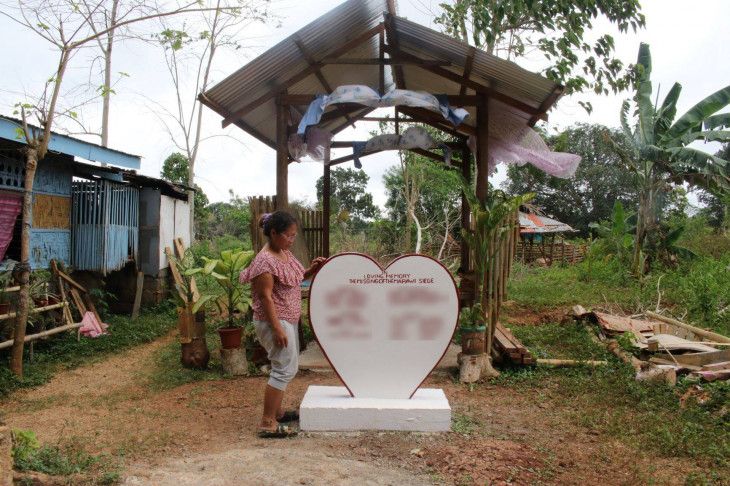
UNENDING LOVE. In Libertad, Misamis Oriental, families built a waiting shed and heart-shaped memorial signage to remember their missing relatives. The heart symbolizes their unending love for them.
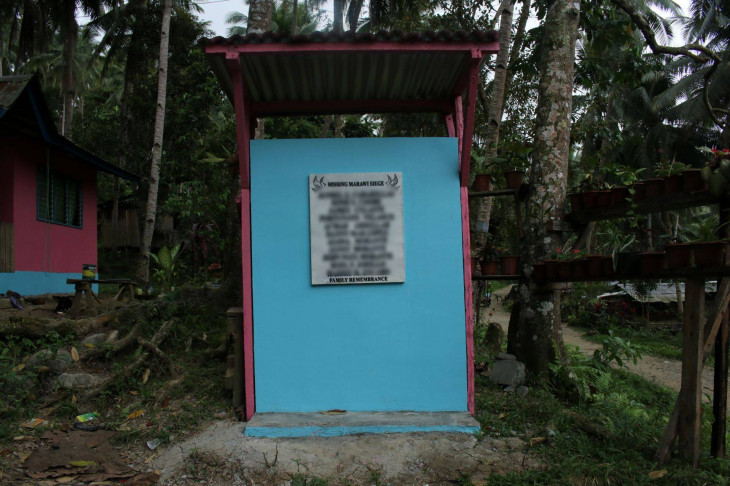
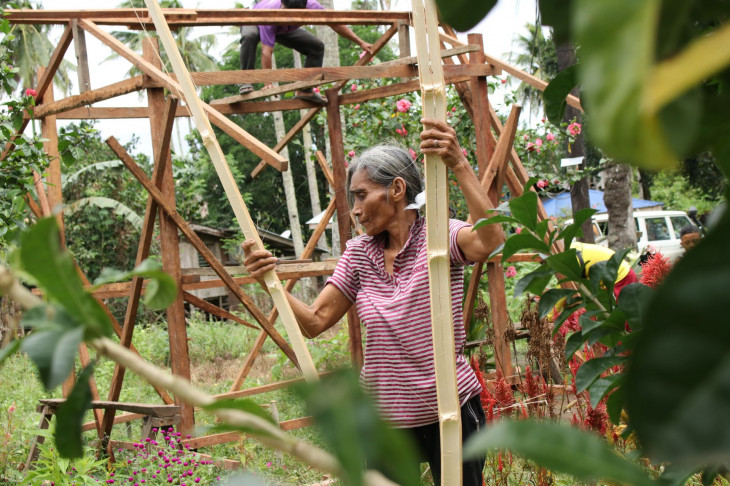
TAPOK TAPOK (TO GATHER). In Kapatagan, Lanao del Norte, families built a waiting shed where they can gather (tapok) even after the accompaniment programme ends.
Rosa’s group chose to plant 45 mahogany trees to commemorate their missing relatives.
“Maka ali siya sa yuta ug mudako na siya. Makatabang pud to siya sa mga landslide (“When the trees grow, they can help strengthen the land and prevent landslides from happening),” she said.
For these families, this phenomenon represents the support that their missing relatives used to provide to them as most of them were breadwinners.
“Kining mga kakahuyan kay handumanan namo sa among mga missing. Man-dagko man to sila, dili sila mangawala (“These trees symbolize our missing relatives. They will grow into bigger trees and will not be gone),” she added.

HAND IN HAND. Rosa and her husband join hands in planting mahogany trees to remember their two sons.
Bittersweet ending
Nanay Rosa has mixed feelings on the peer-support sessions which have ended.
“We can always meet and make happy memories together. We’re a family now. There may also be plans to continue the sessions even without the supervision of the ICRC,” she said in near tears.
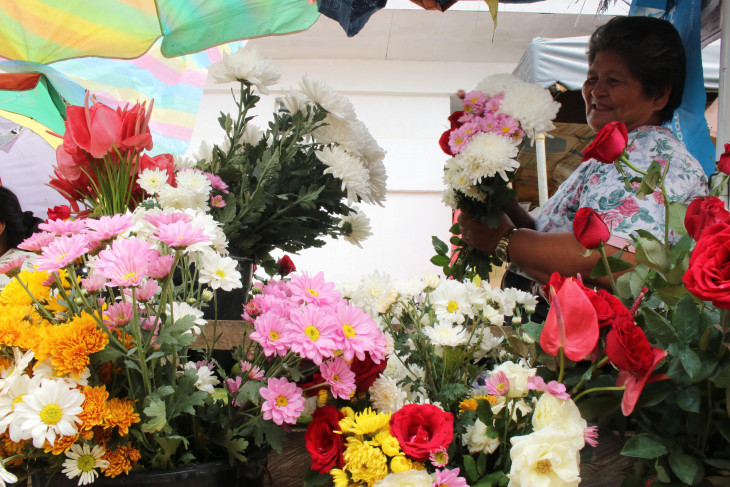
LIFE GOES ON. Rosa’s group plans to continue having sessions even without the ICRC’s facilitation.
When the last tree was planted and it was time for their salu-salo (get-together), Nanay Rosa shared that her favorite time of day is dawn because it helps her remember there is light after darkness.
“I utter my morning prayers every time – for my family to be at peace, and my two sons to be in a good place wherever they are,” she said.
(The names of missing persons and their family members were changed in this story. Text and photos by Amer Hassan Sanggacala, ICRC communication officer based in Iligan City.)
If you have a relative who went missing during the 2017 Marawi crisis, please contact our hotlines for families of missing people:
Iligan-based: 0921-8096803 (Smart) and 0917-8645818 (Globe)
Languages: Tagalog, Maranao and Bisaya
Zamboanga-based: 0947-9703578 (Smart) and 0956-6923181 (Globe)
Languages: Tausug and Tagalog

